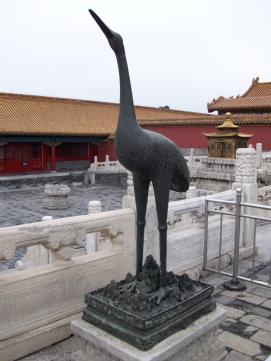Global Commodities: The Material Culture of Early Modern Connections
Events
Planning workshop at Warwick
workshop 1: The Global Material Culture of Everyday Living: Ottoman Consumption in a Comparative Perspective
workshop 2: Sites and Nodes of Material Exchange: Material Culture of the Americas in a Global Age
workshop 3: Producing Material Culture for Global Markets
Final Conference: Global Commodities: The Material Culture of Early Modern Connections, c. 1400-1800
Overview
This AHRC International Network investigates the role played by material culture in shaping cultural, social and economic connections worldwide in the period c. 1400-1800. The network is a collaboration between the University of Warwick, the Victoria and Albert Museum, the Peabody Essex Museum in Salem and Bilgi University, Istanbul.
The Network's partners are: Anne Gerritsen and Giorgio Riello (University of Warwick), Glenn Adamson (V&A), Karina Corrigan (Peabody Essex Museum in Salem) and Suraiya Faroqhi
(V&A), Karina Corrigan (Peabody Essex Museum in Salem) and Suraiya Faroqhi (Bilgi University, Istanbul).
(Bilgi University, Istanbul).
The significance of this network lies not just in the global remit of its analysis, but in its ability to bring together scholars from different continents who specialize in specific area studies. Central to this network is the intercultural dialogue that the exploration of material culture will generate. The focus on objects will help participants to transcend linguistic and disciplinary barriers. The themes to be explored in the workshops and conferences have emerged from discussions between all parties involved. 'Production for global markets', 'Nodes of exchange', and 'Material cultures of everyday life'.
Mission Statement
The research objectives of the ‘Global Commodities’ network include:
• the combination of the methodologies of global history and material culture to analyse the role of material artefacts in establishing and developing global connections;
• to encourage scholars who specialize in individual area studies and/or disciplines to engage in transregional, global and interdisciplinary research;
• to promote intercultural dialogue and understanding through the historical study of material culture.
Events
We plan to develop five interdisciplinary and cross-cultural themes through international symposia:
1. Planning Workshop, University of Warwick, 13 April 2011
How was materiality interpreted in different parts of the world? What were their social and cultural associations? This stands aims to create a dialogue between history of art, architecture, literary scholars and historians. This preliminary meeting will discuss the methodologies, themes and outcomes of the Network
2. 'The Global Material Culture of Everyday Living: Ottoman Consumption in a Comparative Perspective', to be held at Bilgi University, Istanbul, 15 -16 September 2011
How did the global exchange of commodities impact on the everyday living of people and change rituals of social interactions? The focus here will be on interdisciplinary approaches to objects, drawing on anthropology and art history
3. 'Sites and Nodes of Material Exchange: Material Culture of the Americas in a Global Age', Peabody Essex Museum, Salem, 23 March 2012
This strand of research aims to bring together specialists in art and architecture, curators, historians, geographers and archaeologists to interrogate the sites and spaces of early modern interaction that shaped the exchange of material objects. The focus of the meeting is on the material culture of the Americas. Discussion will be complemented by hands-on session with artefacts from the Peabody Essex Museum's collection.
This Network event will take place in conjunction with the Symposium 'Material World: The Art and Culture of Global Connections'  organised by the Peabody Essex Museum in partnership with the Warwick Global History and Culture Centre
organised by the Peabody Essex Museum in partnership with the Warwick Global History and Culture Centre
4. 'Producing Material Culture for Global Markets', Victoria and Albert Museum, London, 11-12 October 2012
What are ‘global’ commodities, and what characterises the relationship between individual commodities and their different cultural contexts? This strand draws on interdisciplinary methodologies drawing on art history, anthropology, and cultural studies.
5. Final International Conference: 'Global Commodities: The Material Culture of Early Modern Connections, c. 1400-1800', University of Warwick, 12-14 December 2012

Contacts
Dr Anne Gerritsen or Dr Giorgio Riello
Warwick Global History and Culture Centre
Department of History
University of Warwick
Coventry CV4 7AL
United Kingdom
Tel: +44 2476 522163 Fax:+44 2476 523437
Emails: a.gerritsen@warwick.ac.uk or g.riello@warwick.ac.uk
